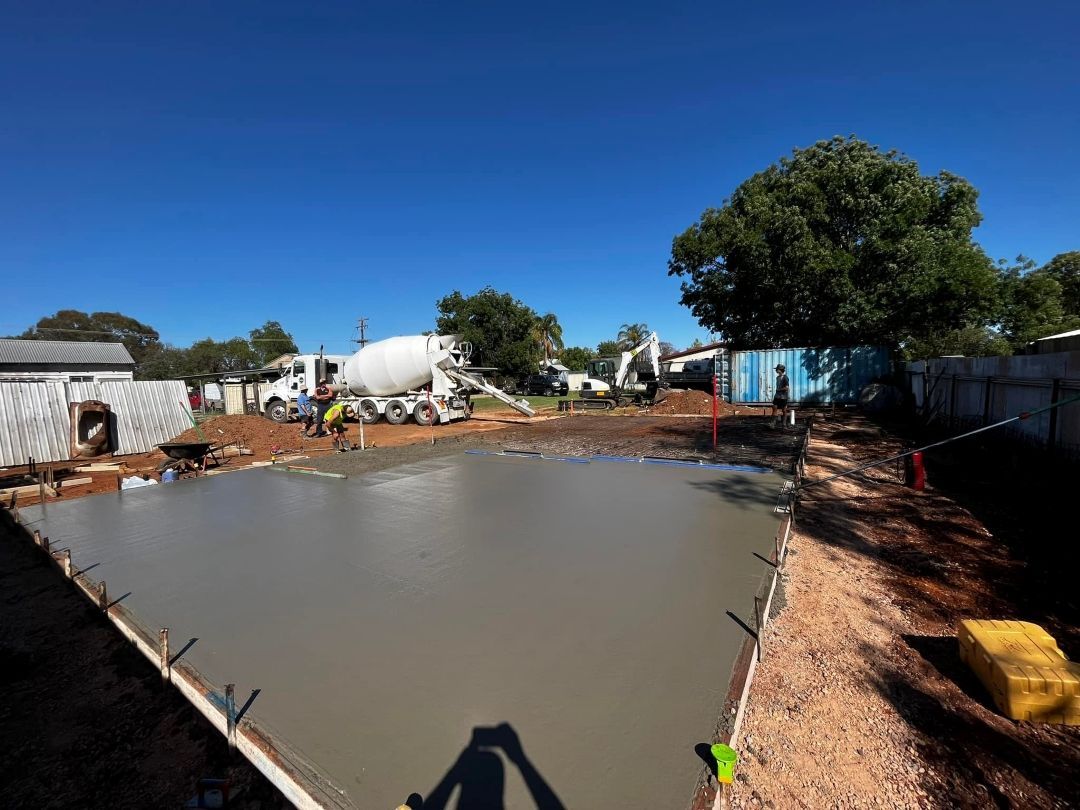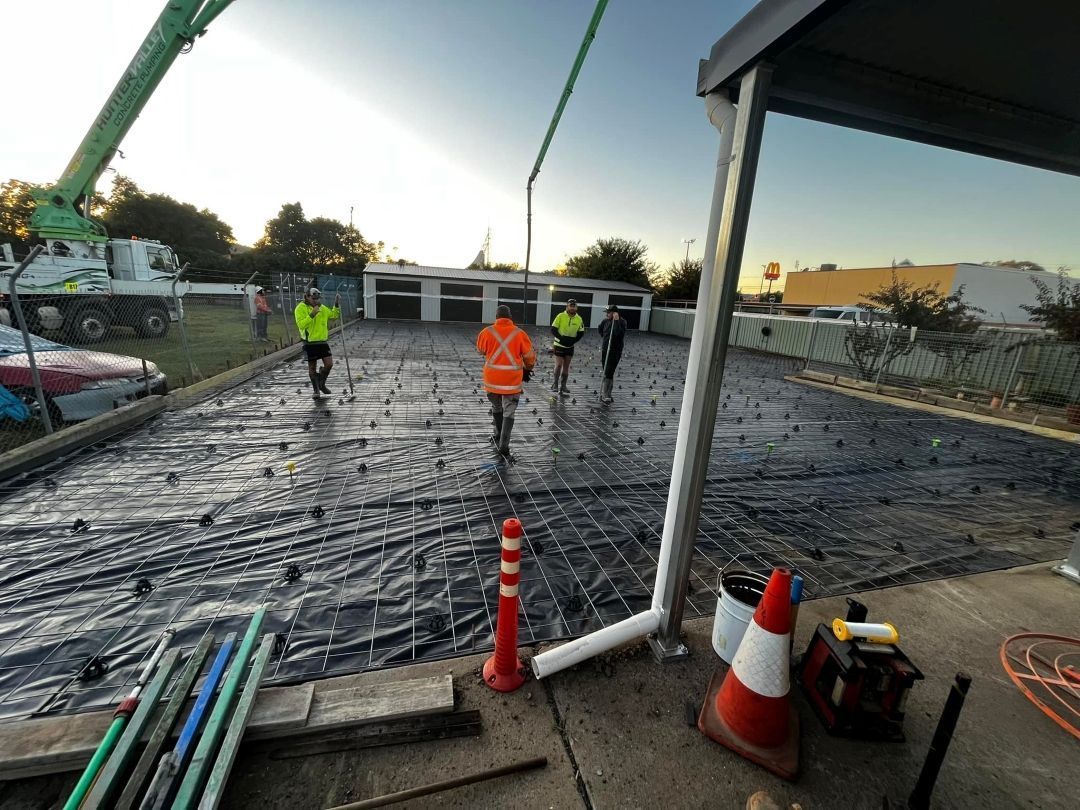Concreter in Maitland
- Concrete & Earthworks Specialists
- Servicing the Orana & Hunter Regions
- Projects of Every Size & Scope
Request a Call Back in Maitland
Thank you for contacting All Aspects Concreting & Earthworks Pty Ltd.
We will be in touch soon.
Please try again later.
Maitland Concreter
When you need a reliable concreter in Maitland, All Aspects Concreting & Earthworks is ready to deliver results built for a growing region. We provide a full range of concreting services for residential, commercial, industrial, rural and civil projects, backed by expert earthworks and site preparation. From new driveways and patios in booming estates to slab work for small businesses and rural properties, we bring the skills, experience and workmanship Maitland property owners can rely on.
In a town that’s growing fast but still proud of its working roots, we deliver concreting solutions that are built to last. Our team understands the demands of both new estate builds and established homes, offering flexible services that keep pace with Maitland’s changing needs.
- Residential, commercial, industrial, rural and civil concreting
- Full earthworks, site cuts, trenching and excavation services
When you want concreting services in Maitland that combine strength, reliability and an excellent finish, talk to All Aspects Concreting & Earthworks today on
0408 294 122.
Concrete Solutions Built for Maitland
Maitland is booming, with new homes, growing families and expanding businesses that reshape the region yearly. Whether building your first home, upgrading an established property or setting up a commercial project, strong, reliable concreting is essential to getting it right from the start. We provide high-quality slabs, driveways, patios, accessways and site preparation services designed to handle today’s needs and tomorrow’s growth across the Maitland area.
We understand Maitland’s development pace and the pressures that come with it—tight access, fast turnarounds, changing land conditions and long-term investment value all matter. Our team brings the skills, machinery and planning needed to deliver durable, great-looking results without unnecessary delays or cutting corners.
- Concrete and earthworks for new estates, homes and businesses
- Skilled workmanship and finishes designed for long-term value
When you want concreting services that are built to support Maitland’s future growth — and your future property plans — talk to All Aspects Concreting & Earthworks today.
Frequently Asked Questions
Can weather affect the concreting process and final result?
Weather conditions can significantly impact the concreting process and the final outcome. High temperatures can cause rapid evaporation, leading to surface cracking and reduced strength if curing isn’t adequately managed. Cold weather can slow curing and increase the risk of weak or brittle concrete. Rain during placement can wash out the surface layer, weakening the finish and altering the mix’s water-cement ratio. Wind can accelerate drying and cause surface crazing. Proper weather planning, use of curing compounds and protective coverings are critical to achieving strong, durable concrete.
What type of concrete is used for industrial floors and warehouses?
Industrial floors and warehouses typically use high-strength, heavy-duty concrete to withstand constant heavy loads, machinery traffic and abrasion. Concrete with a compressive strength of 32 MPa or higher is standard and slabs are reinforced with heavy steel mesh or rebar. Fibre-reinforced concrete is often used to reduce cracking. Surface hardeners or epoxy coatings are sometimes applied to increase wear resistance. Proper jointing and curing practices are critical to prevent curling or cracking. Industrial concrete must be durable enough to survive years of demanding operational use without failure.
How important is drainage planning in civil concreting works?
Drainage planning is critical in civil concreting works to prevent water damage, erosion, structural instability and premature surface wear. Without proper drainage, water can pool on surfaces, weaken subgrades, cause slab movement and undermine the longevity of public infrastructure like roads, footpaths and kerbs. Civil concreting designs include graded surfaces, integrated drains, kerbs, gutters and sometimes stormwater detention systems to manage runoff effectively. Engineers carefully calculate slopes and outlet locations to ensure that water flows safely away from structures, protecting both public safety and the concrete's structural lifespan.






